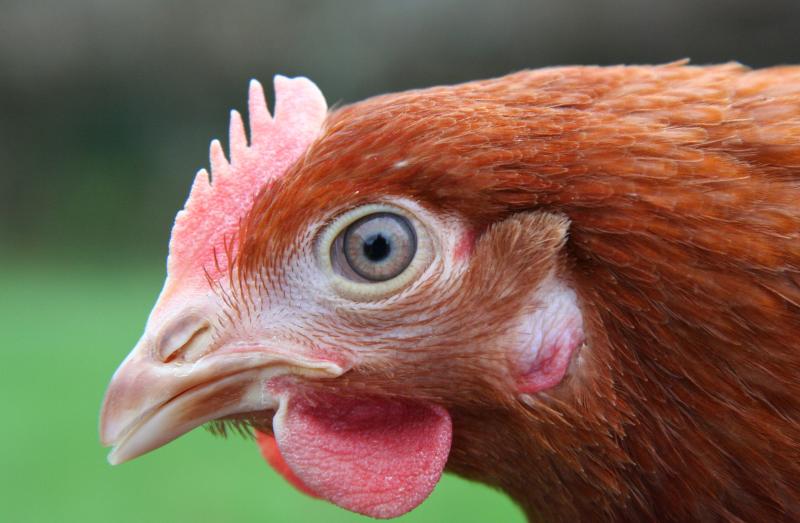Defra requests urgent action to ban beak trimming

Defra has written to the Laying Hen Welfare Forum, the body responsible for hen welfare for the laying hen industry, requesting urgent action to bring forward a ban on beak trimming.
The Defra Minister Lord Gardiner replied to a progress report on the industry's attempt to reduce injurious pecking.
The Minister recognised that progress had been made, as well as the challenges that egg producers, veterinary practices, breeding companies and feed companies have in illuminating injurious pecking.
However, he insisted that the group “set out an action plan, with clear milestones for the elimination of beak trimming as soon as possible.”
Beak trimming is a process undertaken to take the tip off the end of a hen’s beak to prevent pecking other birds.
Feather pecking is one of the most widespread problems in the free-range egg production and most difficult to control, with animal welfare implications and economical losses.
Mark Williams of the British Egg Industry Council says the industry wrote to the Minister as part of an agreement to prepare two-yearly reports.
"When our Minister said to us that he wasn't going to put a ban on beak trimming in place in 2016, unlike some other European countries, he did make it very clear to us that he expected to see some progress to reduce the need to beak trim hens and eventually phase it out," said Mr Williams.
He said that progress was being made through genetics in reducing aggression in birds.
More fibre
The feed industry was also looking to include more fibre in the diet as another way of reducing the potential for injurious pecking, but he said it was still too early to think about managing birds without beak trimming.
A ban on the use of beak trimming was originally due to be introduced in 2011 but was deferred on the advice of the Farm Animal Welfare Council (FAWC), which was concerned about the implications for injurious pecking if the practice was outlawed.
When it deferred the ban, the Government said it would review the decision in 2015 with a view to a ban being introduced in 2016.
However, following lobbying by industry, Farming Minister George Eustice abandoned the idea of pressing ahead with a ban in 2016.
Once again, he said the risk of injurious pecking outbreaks amongst commercial layer flocks was too great for a ban to be imposed.
But the Minister said that a number of improved management techniques to help reduce feather pecking had been identified and he expected to see these techniques introduced across the laying hen sector.
He also said he wanted a report every two years from the egg industry on progress towards eventually being able to manage birds without the use of beak trimming.
Beak Trimming Action Group
Following the deferral of a ban in 2011, the Beak Trimming Action Group (BTAG) was established to advise the Government on the issue.
It comprised representatives from animal welfare groups as well as poultry industry leaders, vets, scientists, retailers and Defra officials.
Trials were also commissioned to see how commercial layers could be managed without the use of beak trimming.
Some of those trials were conducted by a team led by Professor Christine Nicol at Bristol University’s School of Veterinary Sciences.
Some of the trial units reinforced the view in the egg industry that a ban should not yet go ahead when serious outbreaks of injurious pecking occurred amongst birds left with their beaks intact.
A 16,000-bird free range trial flock in East Anglia had to undergo emergency beak trimming after injurious pecking resulted in a mortality rate of 20 per cent.
On another free range trial unit in Yorkshire the mortality rate hit 15 per cent amongst birds whose beaks were left intact.
'Severe feather pecking'
When George Eustice announced his decision in late 2015, he said that BTAG had advised that “the risks of introducing a ban on infra-red beak trimming are too great”.
“It could result in outbreaks of severe feather pecking and having to employ emergency beak trimming using the hot blade method, which is a far worse outcome from an animal welfare perspective.”
Joaquin Percebal, a veterinary expert at the Poultry Health Services, said feather pecking is one of the most widespread problems in the free-range egg production and most difficult to control, with animal welfare implications and economical losses.
He said that as a result of pecking, the hens in a flock can become seriously de-feathered, making the flock more susceptible to stress and diseases.
Animals with poor plumage will need more energy to keep their body temperature and may have higher mortality and lower productivity.
The earliest signs of feather pecking may commence with rapid disappearance of feathers lying on the litter, the occasional noise of a hen screeching and then we see hens with dishevelled plumage.








